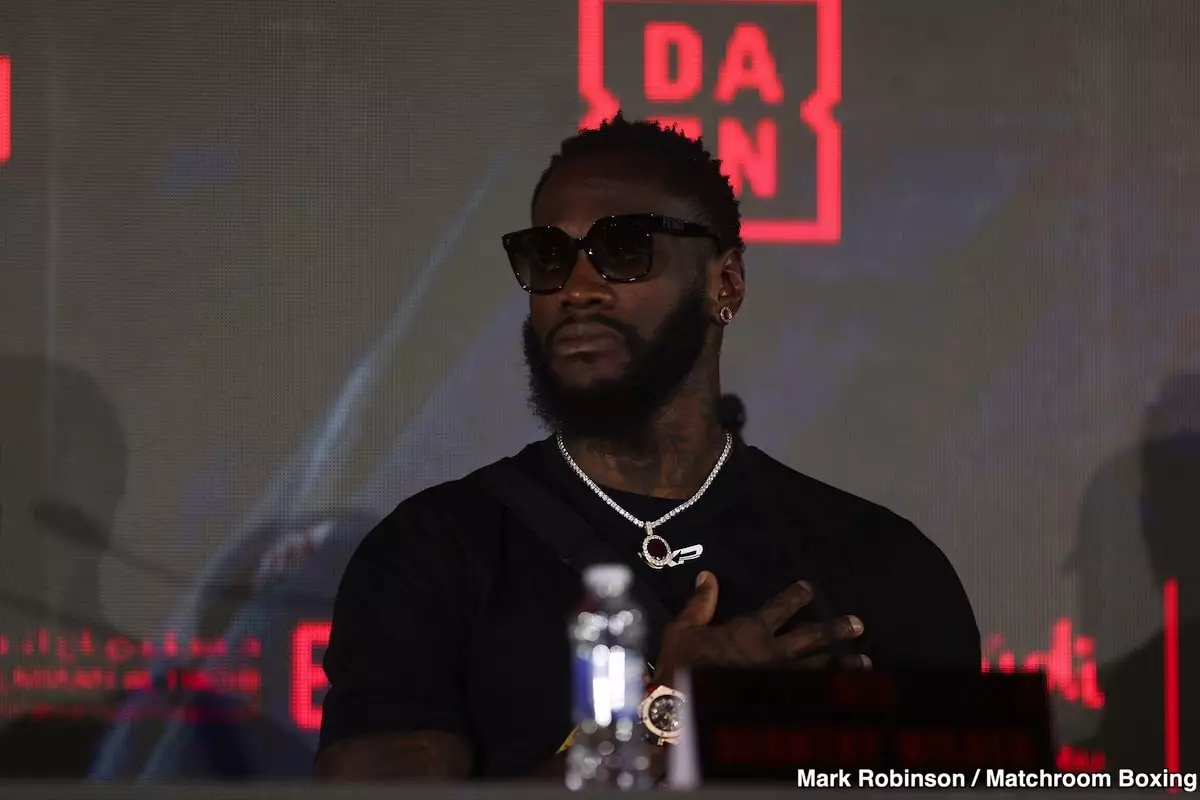In the world of professional boxing, few stories resonate as deeply as that of Deontay Wilder. Once revered as the heavyweight king, the former WBC champion faces a critical juncture in his career when he enters the ring against Stephan Shaw later this April. This bout, taking place in Atlanta, Georgia, under the BLK Prime banner, is not merely an event on the calendar but a life-altering moment that could define Wilder’s legacy. With a record that reflects a shocking decline—1-4 in his last five bouts—there’s an undeniable urgency for Wilder to reclaim his stature in the sport or risk being relegated to the annals of boxing’s forgotten heroes.
Wilder’s formidable stature at 6’7″ paired with his notorious punching power (boasting 42 knockouts out of 43 victories) once made him a fearsome presence in the heavyweight division. However, critics now question whether the “Bronze Bomber” can summon the explosive ferocity that once defined his fighting style. The psychological impact of recent defeats is evident; Wilder appears hesitant, inhibited by the fear of getting hit versus the instinctual urge to unleash his formidable power. This internal conflict threatens to overshadow his physical capabilities, as he needs not just skill but also the mental fortitude to engage effectively in the ring.
The Rising Threat: Stephan Shaw
Stephan Shaw stands as both an opportunity and obstacle for Wilder. At 32, Shaw, with a record of 20-2 (15 KOs), represents a young and hungry fighter at a stage when Wilder should be competing against elite-level opponents. Shaw’s development and willingness to take risks in the ring positions him as a litmus test for Wilder’s current ability. Unlike Wilder, who has recently demonstrated reluctance to throw punches, Shaw’s aggressive style and willingness to exchange blows could expose vulnerabilities in Wilder’s game. It is precisely this fearlessness that may either be the downfall or salvation of Wilder’s already tumultuous career.
Wilder has faced formidable opponents in the past—most notably Tyson Fury, who was viewed as an easy target before proving otherwise. The psychological toll of those bouts, combined with Wilder’s declining age, has left many fans and analysts questioning if the former champion can reinvent his fighting style for longevity in the sport. Shaw has lost only to aggressive contenders, indicating that while he may not be a titleholder, he has the capacity to give Wilder a rough outing. Should Wilder carry the weight of his previous losses into this contest, there’s a legitimate chance he could succumb to another knockout, ending not only his fighting career but also his legacy in the ring.
Ultimately, the showdown against Stephan Shaw isn’t just about two fighters facing off; it’s about Wilder confronting his doubts, fears, and the harsh reality of a diminished career. This fight serves as a crossroads—whether he continues to fight the strain of defeat or steps back into the fold of champions remains uncertain. Should Wilder fail to deliver a convincing performance, retirement may become his only viable option, not driven by a lack of talent, but by the indelible scars left from a storied yet increasingly complicated pathway through the world of boxing.

